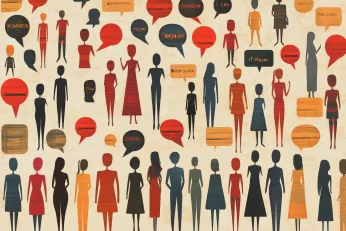
Facebook and publishers: live by the algorithm, die by the algorithm

As anyone who has been trained by me of late will know, Facebook is the 1000lb gorilla in the traffic generation game right now. It’s been steadily rising as a percentage of traffic referrals to publisher sites, and it by far blows away all other forms of social media. Despite journalists’ obsession with Twitter, it is far less powerful in driving traffic than its big blue rival.

All of which makes news like this disquieting for publishers:
Referral traffic (desktop + mobile) to the top 30 Facebook publishers (as defined by their reliance on Facebook) plunged 32 percent from January to October, according to SimpleReach, a distribution analytics company. The more reliant the publisher on Facebook, the bigger the hit: Among the top 10, the drop was a steeper 42.7 percent.
Impact of Facebook algorithm changes
At least some of that is attributable to a Facebook newsfeed algorithm change, which targeted news sites:
Facebook altered its code in July, and statistics show that the top 25 news organisations saw a fall of 15% within a month of interactions with their content through the social medium.
The worst affected of those was the Huffington Post, which saw its interactions fall by nearly half, from just above 45 million to slightly above 25 million.

This is, perhaps, understandable. Nobody wakes up in the morning and logs into Facebook to read the news. That might be what they end up doing – but they’re actually there to keep up with friends and family. If the newsfeed swings too far towards journalism, and too far from photos and videos of your mates, Facebook loses its key competitive driver.
We are only ever going to be a bit part player in the news feed, a second fiddle to the social interactions that make up the majority of the newsfeed. (That’s why, incidentally, creating content that triggers social interactions is so important in newsfeed success.)
Is the future pay-to-play on Facebook?
And there may be more bad news for Facebook-dependent publishers to come. As Mathew Ingram points out:
The other nagging fear for media companies is that Facebook is essentially engaging in a large-scale bait and switch, by encouraging them to host all of their output on its platform, but then gradually turning off the traffic tap so that their reach declines. At that point, the social network can recommend a number of ways to boost the reach again—including by paying for promoted posts and other forms of advertising.
Everyone working in social media marketing will be nodding sagely right now – because that’s pretty much exactly what happened to the organic reach of marketing pages. That’s pretty much a pay-to-play game right now.
Any sensible publisher seeks a balanced range of traffic sources, so they’re not too vulnerable to a shift by a single player – especially an algorithmically-driven one. This is just another reminder of what that should be the case.
Sign up for e-mail updates
Join the newsletter to receive the latest posts in your inbox.










